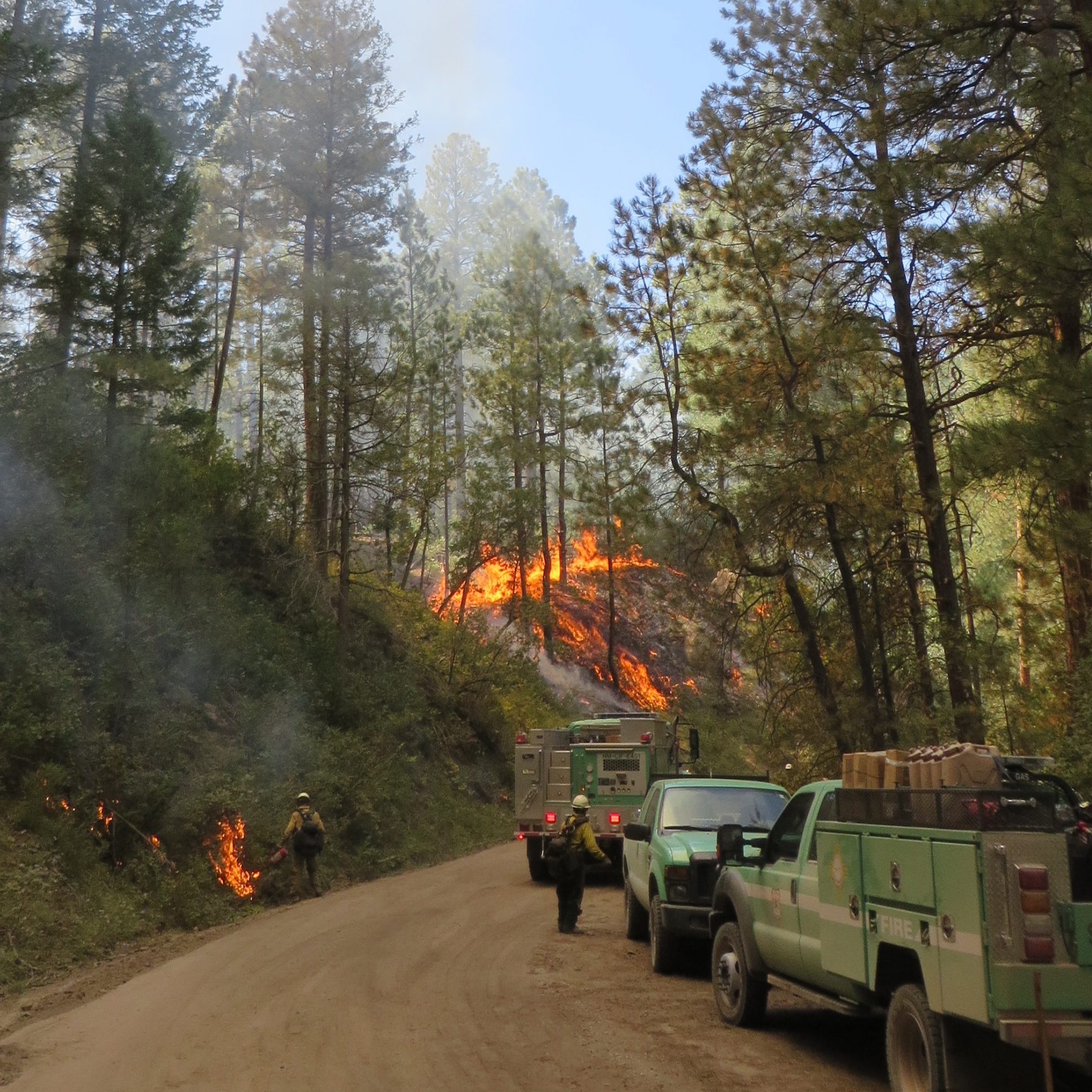As a part of our updates on our work with Tribes on wildfire, climate, and forestry, today we discuss wildfire, climate and forestry education and work as it relates to Indigenous Peoples.
Indigenous Peoples from the current day United States have tended to and cultivated these lands since time immemorial. They are the original Foresters, Wildfire Managers, and Ecologists but this is not reflected in the modern-day workforce or in academia. In 2021, only 0.185% of conservation scientists and foresters were Native American, including Alaska Native and Native Hawaiian. Additionally, Native Americans, including Alaska Natives and Native Hawaiians were 1.04% of those awarded Natural Resources and Conservation degrees and 1.61% of Forestry degrees.
Tribal Engagement Goals & Efforts
Four goals guide our Tribal engagement efforts: 1) increase Indigenous enrollment in NAU’s School of Forestry (SOF), 2) prepare students with relevant skills that they can take back to their Tribe’s natural resources departments, 3) support knowledge exchanges between Tribes as well as between Tribes and agencies/organizations, and 4) build capacity for Tribes to sustain resilient communities. Our Tribal Liaison, Callum, and their student workers are currently engaged in many projects that will support achieving these goals.
Expanding the inclusion of Indigenous Knowledges and sciences in educational curriculums is underway in the Southwest Fire Science Consortium’s Fire Ecology Learning Lab and the courses for the School of Forestry’s two new online degrees that begin in Fall 2024. In addition, Callum is partnering with the USFS Interagency Fuels Training to create three modules (Awareness, Application, Management) for USFS employees to better partner with and show up for Tribal Nations. Callum has also created a training for our AZWI staff with an educational series named Engaging SW Indigenous Communities in Forestry, Fire and Climate Resilience.
Our Tribal Liaison student workers support the creation of resources for our students, staff and faculty. This includes a resource list on what NAU and the SOF can offer Indigenous students and fact sheets “AZ Tribal Nation” and “Whose Land.” They also work with our Tribal Liaison to write syntheses and summaries of conference notes and relevant readings for internal and external distribution regarding Indigenous forestry, fire and climate needs. These products are also in partnership with NAU Indigenous-serving entities such as the Office of Native American Initiatives (ONAI), Office of Indigenous Student Success (OISS) and the Native American Cultural Center (NACC).

